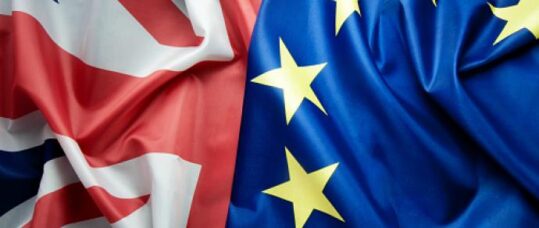96% drop in EU nurses coming to UK since 2016

There has been a 96% drop in nurses from the EU registering to practice in UK since July 2016, according to figures from the Nursing and Midwifery Council (NMC).
The figures were obtained by the Health Foundation from a Freedom of Information request to the NMC.
In July last year there were 1,304 EU nurses who registered to work in the UK, which fell sharply to 344 nurses in September, following the EU referendum on 23 June.
The numbers have since continued to fall, with just 46 EU nurse registrants in April 2017.
The introduction of more rigorous language testing for nurses from outside the UK is likely to contribute to the decrease.
International recruitment has been used repeatedly by the NHS as a temporary solution to the staffing shortages. In England alone, there is a shortage of 30,000 nurses.
Since 2008 the majority of international nurses registering in the UK have come from within the EU. However, the new figures indicate the need for a more sustainable long-term approach to workforce planning.
Related Article: NHS 10-year plan: What does it mean for nursing?
‘A combination of factors’
Jackie Smith, NMC chief executive and registrar said: ‘Earlier this year we released figures which showed the number of EU trained nurses and midwives joining our register was reducing. At the same time, figures also showed the number of EU trained nurses and midwives leaving our register was increasing.
‘Latest figures for April and May 2017 show that these trends have continued, however, it is still too early to say definitively that this is due to any one reason. It is more likely that a combination of factors are at play including the recent introduction of English language controls and the uncertainty about the effect of Brexit on individual nurses.
‘As a result, we will be shortly undertaking research to help us better understand the reasons why these nurses and midwives are choosing to leave our register.’
‘Severe consequences’
Royal College of Nursing (RCN) chief executive and general secretary, Janet Davies said: ‘We rely on the contributions of EU staff and this drop in numbers could have severe consequences for patients and their families.
‘Our nursing workforce is in a state of crisis, with more than 40,000 vacancies in England alone. Across our health service, from A to elderly care, this puts patients at serious risk.
‘These figures should act as a wake-up call to the Government as they enter Brexit negotiations. EU staff should be left in no doubt that their contributions are welcome and valued,’ Davies added.
Securing EU nurses currently in UK should be a priority
A Department of Health (DH) spokesperson said: ‘We understand the need to give valued NHS staff from the EU certainty which is exactly why we have made clear that the future of those EU nationals working in our health and care system should be a priority in Brexit negotiations. We also have over 52,000 nurses in training to ensure the NHS has the nurses it needs.’
‘Wake-up call’
Anita Charlesworth, director of research and economics at the Health Foundation, said: ‘The findings should be a wake-up call to politicians and health service leaders.
Related Article: Funded nurse workforce plan needed for neighbourhood health services
‘Clearly action is needed to offset any further loss of EU nursing staff in the near future. But the overall shortage of 30,000 nurses is not a shortage caused by the Brexit vote. The chronic shortage of nurses is the result of years of short-term planning and cuts to training places. A sustainable, long-term approach to workforce planning is desperately needed,’ Charlesworth said.
Nurses ‘very worried about workforce’
Nurse advisor, Marilyn Eveleigh said that news is ‘not surprising’: ‘Nurses are an in demand profession. There are many other countries that are calling to recruit nurses from abroad that are in greater stability than ours.
‘Our EU nurses are uncertain of their future. At the moment because Brexit negotiations haven’t even started, they don’t know whether they will even be able to stay.
‘Those nurses are propping up our health service and we are very worried about that workforce. So for new EU nurses coming in, they are just not going to take the chance that we may be turned away. They don’t feel that they would be welcome.
‘Healthcare organisations have spent a lot of time reassuring their EU nurses how welcome and needed they are. So at grassroots levels there is a lot of appreciation for our colleagues from the EU, but that’s not matched by the higher levels.
‘The Government should make an immediate decision that all EU nurses working in the UK can remain and can carry on pushing their careers and supporting our health service,’ Ms Eveleigh said.
‘Firm agreement needed’
Related Article: Over one million children living in homes causing asthma and chronic illness
Niall Dickson, chief executive of the NHS Confederation, said: ‘EU nationals make a hugely important contribution to the delivery of health and care services, and it is only right this this is recognised.
‘Their status after the UK leaves the EU is still uncertain and we continue to urge the government to guarantee the rights of EU nationals as soon as possible.
‘This would be the first step towards ensuring the system is able to recruit and retain a motivated and qualified workforce fit for the 21st Century.
‘A clear public commitment from the Government is needed, along with a firm agreement with the EU early in the negotiations.’

See how our symptom tool can help you make better sense of patient presentations
Click here to search a symptom


There has been a 96% drop in nurses from the EU registering to practice in UK since July 2016, according to figures from the Nursing and Midwifery Council (NMC).



